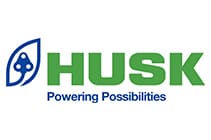Aiming to accelerate public-private partnerships (PPP) that can achieve universal electrification in Least Developed Countries (LDCs), Husk Power Systems today issued an invitation to governments in Sub-Saharan Africa to partner in scaling the deployment of renewable energy minigrids in off-grid, weak-grid and under-the-grid communities.
Announced during the Private Sector Forum at the 5th United Nations Conference on the Least Developed Countries (LDC5), Husk said it welcomed expressions of interest from national and sub-national governments.
Elements of the company’s proposed PPP:
- Husk to finance the building of 200 minigrids in one or more LDCs in Sub-Saharan Africa;
- Husk to own and operate the minigrids for the lifetime of the projects;
- Husk to select the 200 communities based on its business model and to have the ability to charge cost-reflective tariffs that are affordable for customers;
- Interested governments to provide a 20- to 25-year concession to Husk;
- If required, interested governments and/or their funding partners to provide viability gap support for the initial phase of minigrid operations.
The need to accelerate electrification in LDCs is enormous. Lack of electricity impacts hundreds of millions of lives and countless small businesses. In the 33 LDCs in Africa, the electrification rate is only 36%. For rural areas in LDCs, the number of newly connected customers each year needs to increase from 13.7 million to 41 million to achieve Sustainable Development Goal (SDG7) – access to modern, reliable, clean and affordable electricity for all by 2030.
Under its proposed PPP, in one country Husk estimates that 200 of its minigrids would benefit up to 1 million people and 10,000 small businesses, power hundreds of schools and health clinics and avoid 15,000 tons of CO2 annually by displacing diesel and gasoline generation.
In 2022, Husk became the first and only minigrid company to sign a UN Energy Compact in support of SDG7. In its UN Energy Compact, Husk pledged to build up to 5,000 minigrids that would benefit more than 11 million people.
Husk currently has more than 200 minigrids in operation in India, Nigeria and Tanzania and expects to double that number to 400 within the next 12 months.
Referring to today’s announcement, Manoj Sinha, Husk’s Co-Founder and CEO, said: “As LDC governments in Sub-Saharan Africa look to roll out integrated energy systems that will be both fiscally sound and climate resilient, Husk is ready for action. We have the scale and a proven business model, and it’s now time for SDG7-focused public-private partnerships to move from pilot phase to full-fledged market interventions that can achieve radical scale.”
“By expanding access to modern energy services, renewable energy can help lift millions of people out of poverty, improve health and education, create jobs and income opportunities for people in the Least Developed Countries,” said Heidi Schroderus-Fox, Director of the UN Office of the High Representative for the Least Developed Countries, Landlocked Developing Countries and Small Island Developing States and Executive Secretary of the Fifth UN Conference on the Least Developed Countries (LDC5). “It is encouraging to see that the private sector is stepping up at LDC5 with innovative solutions to achieve SDG7 in the Least Developed Countries.”
Interested governments should contact:
William Brent, Chief Marketing Officer marketing@huskpowersystems.com
+34 684314268
About Husk Power Systems
Founded in 2008, Husk Power Systems is the leading net-zero energy services company in rural Asia and Africa, and operator of the largest fleet of community solar microgrids across the two continents. Its smart and sustainable solutions accelerate access to clean, modern and affordable electricity that has the ability to catalyze socio-economic development. Husk’s focus on the customer meets the growing aspirations of businesses and households, while its grid-integratable solution supports national integrated electrification plans. For more information, visit huskpowersystems.com

